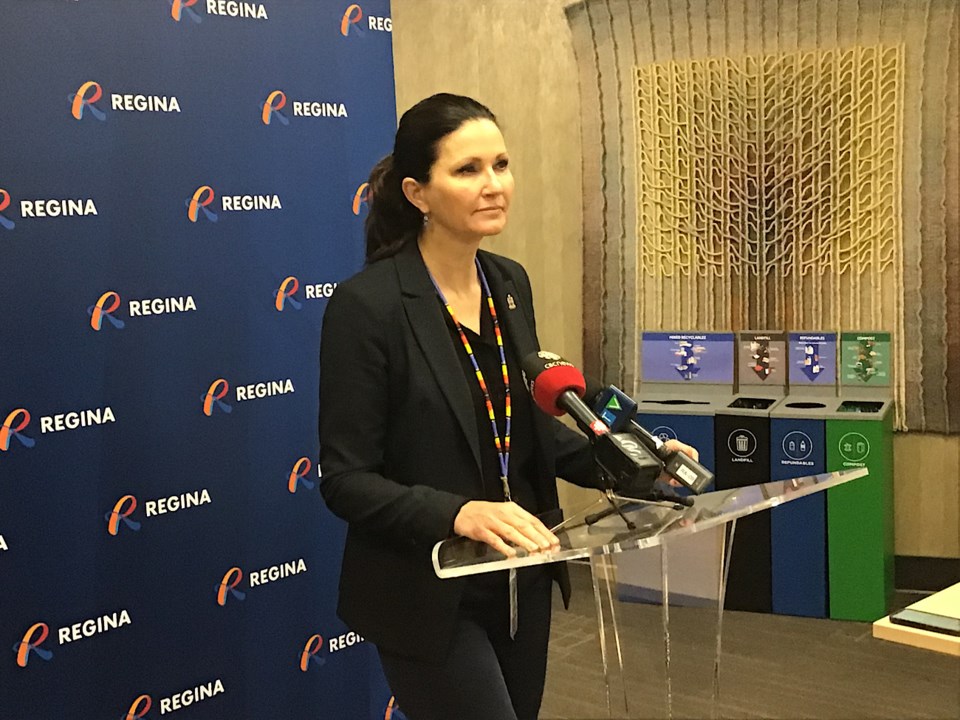REGINA - Regina city council has now heard administration’s plan to trim $2.9 million out of the 2023 budget.
The budget was passed last December with a 3.67 mill rate increase. As part of that approval, administration was charged to come up with $2.9 million in efficiencies and savings to balance the books. Council also required that those measures not negatively impact service delivery, had to be ongoing in nature and not negatively impact future years’ budgets. But details on what items would be facing cuts were in short supply at that time, with administration pledging to report back in the first quarter of 2023.
At Executive Committee on Wednesday at City Hall, administration’s plan to find those reductions and efficiencies was laid out in a budget implementation update to council members.
The savings come from “five broad buckets,” in the words of City Manager Niki Anderson. The reductions include the following:
$500,000 reduction in travel and training budgets, with Anderson reiterating that any mandatory training is not compromised;
$425,000 reduction in consulting fees;
$784,000 in operational efficiencies with civic fleet maintenance and fleet ratcheting - reducing the number of fleet assets - which will not impact service delivery;
$622,000 in reductions to salary and benefit costs through vacancy management;
$600,000 in leveraging alternative funding sources.
Administration also addressed two one-time expense items of $125,000 related to the warming bus and $500,000 for the emergency shelter, both of which had not been budgeted for. These will be funded using one-time savings from implementing bi-weekly solid waste collection in September, 2023.
The reductions plan drew considerable discussion at council including some concerns about what the proposed savings might mean. Councillor Jason Mancinelli expressed some “trepidation” about cuts to consulting as well as training.
“How do we start to open up different avenues of expertise within administration?” asked Mancinelli. Anderson responded they would be taking more of a “centralized” approach, and indicated when a request comes for consulting services there will be a conversation on whether that is really necessary.
There was considerable discussion about training, and also questions later from Councillor Cheryl Stadnichuk about whether not filling vacant positions would have an impact on staff workload. The indication from administration is that replacements for operational roles were being approved, but they were also looking at new positions and sometimes a reallocation of full time employees.
Mayor Masters asked “how hard was this” in asking about the process of coming up with the savings. Anderson responded it was “always hard when you are trying to decrease the resources you thought you would have. I would also say sometimes there are different ways to use resources so you can get more out of them.”
But she called the process a “valuable exercise” which will be used in budget process going forward, in involving other levels of the organization in how to do things differently.
As for “actualizing” the savings, Anderson said she always finds it easier to identify savings than to implement them. “That will be a good future question,” she said.
There was some concern from councillors that there was not enough detail about the savings found. Councillor Shanon Zachidniak made a motion asking for a supplemental report on the details of the efficiencies achieved, and for that report to come back to council Feb. 22.
“I find it difficult to say that will not negatively impact service delivery,” Zachidniak said of the plan put forth by administration to find $2.9 million. “We are accountable for these efficiencies, ultimately.”
She wanted to see a further report come back with more detail, but her motion drew opposition from some councillors.
Councillor Bob Hawkins said it was not the job of councillors to “get down into the weeds” and look line by line. “If we had to do that, we’d be here forever,” said Hawkins.
Mayor Sandra Masters said she did not support Zachidniak’s motion and agreed with Hawkins this was getting to a level of detail that was not necessary. Masters did ask how the efficiencies would be reported. The indication from administration is they will be reporting back at various times throughout the year through the regular budget process.
Zachidniak’s motion ultimately fell 7-4. Later, Councillor Dan LeBlanc wanted to move a motion that would approve each one of the line items in the report individually, but it was ruled contrary to the original main motion from Councillor Mancinelli and would have needed the main motion to be defeated to get to the floor.
In the end, council voted in favor of the main motion to receive the report 8-3, with only LeBlanc, Zachidniak and Coun. Andrew Stevens against.
In speaking to reporters afterward, Mayor Masters spoke further on why she didn’t support the call from some councillors for more details to come back on the budget efficiencies.
“I think our job is to say the budget is ‘this’, and for (administration) to execute to that. We get feedback through residents and through administration about what’s working and what’s not working, and we need them to do that day-to-day work. We don’t need to micromanage that. We don’t need to be in the weeds, I think it’s a place that we shouldn’t be, but to hold folks accountable for the work that gets performed.”






